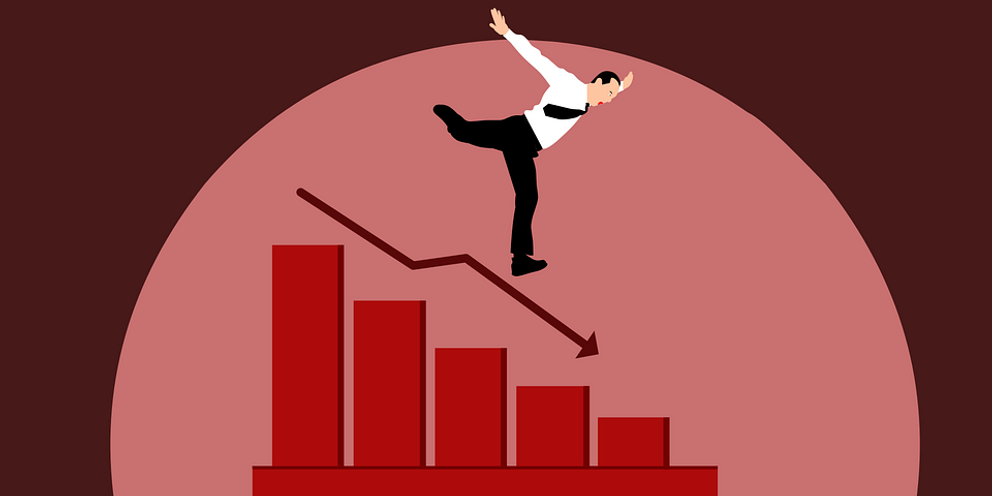
Car Depreciation: How to Calculate It
Image Credit: mohamed_hassan / Pixabay
Car Depreciation is a topic that is not often fully understood by car buyers; it is typically simply something that's added to the price of the vehicle. Depreciation, in short, is what you lose in value over time. Your car's value at trade-in or resale is its depreciated (used) value.
Car depreciation is a mystery to many and can be challenging to calculate. However, here are a few simple steps to compute your estimated depreciation rate.
Before delving into these steps, however, it's crucial to fully understand car depreciation and its effects on your car buying and ownership.

Image Credit: geralt / Pixabay
What Is Car Depreciation?
Car depreciation, simply put, is what you lose in value over time. Your car's value at trade-in or resale is its depreciated (used) value. Depreciation is a natural result of wear and tear but can also be affected by external factors such as economic conditions.
Car depreciation rates will vary based on the make, model, year, and other factors. Exotics will generally depreciate at a slower speed than economy cars, for example.
New cars almost always depreciate rapidly. As soon as you drive a new car off the lot, it can lose up to 10% of its value. The first year or two of ownership is often when you'll experience the most massive percentage loss in value. Depreciation will level out after a few years of ownership and eventually becomes minimal.
The major contributing factor to car depreciation is wear and tear, which naturally occurs over time and with use. Depreciation rates will vary based on the make, model, year, and other factors.
How Quickly Do Cars Drop in Value?
The answer to this question depends on the car you're talking about, but it's important to note that a car's value is mainly based on age. The average new vehicle will lose at least 20% of its value within the first year of ownership, and it will continue to decrease by roughly 10% every year after that.
More expensive cars, such as luxury vehicles and exotics, often depreciate slower than economy cars. The reason is that luxury purchasers are typically less price-conscious and are more willing to pay a premium for newer models. Additionally, the market for used luxury and exotic cars is often quite limited, which helps to support higher resale values.
Overall, depreciation depends on the wear and tear of your vehicle, which means how often you drive your car and how well you maintain it. An example of this is oil changes, as an oil change can save your engine from excessive wear and tear.
How to Calculate Depreciation?
There is no mathematical formula to calculate depreciation, but there are some simple steps you can take to estimate how much your car will depreciate.
Once you've found the depreciation rate for your car, you can use that information to estimate how much your vehicle will be worth.
To do this, multiply the depreciation rate by the purchase price of your car. For example, if your car has a depreciation rate of 20% and you paid $20,000 for it, it will be worth $16,000 after one year. This number will continue to decrease yearly, so it's essential to remember when estimating your car's future value.
You can also use depreciation rates to estimate how much your car has depreciated. To do this, simply subtract the current value of your vehicle from the original purchase price. For example, if you paid $20,000 for your car and it's now worth $16,000, it has already depreciated by $4,000.
It's important to note that depreciation rates are only estimates, and your car's actual depreciation may be higher than or estimated rate. The factors that can increase or change your depreciation rate include the make and model of your vehicle, how often you drive it, and how well you maintain it.
Additionally, economic conditions can also affect depreciation rates. An example is the current recession, which has caused many people to delay purchasing new cars. As a result, the demand for used cars has increased, which has helped to support higher resale values.
How to Beat Car Depreciation
The best way to beat car depreciation is to purchase a car that will hold its value over time. As we mentioned earlier, luxury and exotic cars often depreciate slower than economy cars, so they may be a good choice if you're looking for a vehicle that will hold its value.
Another option is to purchase a used car instead of a new one. Used cars have already experienced most of their depreciation, so they may be a good choice if you're looking for a vehicle that will hold its value.
Finally, another great way to beat car depreciation is to take care of your car. It's essential to keep your car in good condition if you want it to hold its value. Covering your car with a cover is one of the easiest ways to protect your cars value, by keep it safe from most things that can cause minor damage. There are a lot of reasons that covering your car is a good idea.
Regular maintenance, such as oil changes and tune-ups, can help to keep your car running properly and looking its best. Additionally, if you're in an accident, be sure to have your vehicle repaired by a reputable body shop.
What Is the Total Cost of Car Ownership?
The total cost of car ownership includes all the expenses associated with owning a car, such as the purchase price, depreciation, insurance, fuel, maintenance, and repairs.
The total cost of car ownership can vary based on several factors, such as the make and model of your car, how often you drive it, and how well you maintain it.
So how can you calculate the total cost of car ownership for your car? Start by adding up the purchase price of your vehicle (including taxes and fees) and the cost of insurance, fuel, and maintenance. You can also add in the estimated depreciation rate for your car.
Once you've added up all these costs, you'll have a good idea of how much it will cost you to own your car over time. Keep in mind that these costs will vary based on the make and model of your vehicle, how often you drive it, and how well you maintain it.
The best way to lower the total cost of car ownership is to purchase a car that is less expensive to own. Luxury and exotic cars, for example, often have higher total ownership costs than economy cars.
Lowering your car ownership costs can also be done by doing repair work at home and buying a used car instead of a new one.
FAQs
How much does a car depreciate each year? This answer will vary based on the make, model, year, and other factors.
However, the average new car will lose at least 20% of its value within the first year of ownership and will continue to lose its worth after the fact. Your car will depreciate rapidly, especially if you buy a new car. This is something you should remember in mind when considering a purchase or when you go to trade it in.
How can I calculate depreciation? Although there's no single mathematical formula to calculate depreciation, it's crucial to realize that it can be calculated in any specific instance depending on your car and other factors.
Search online for your car's depreciation rate. You can use some different resources to find this information, such as the Kelly Blue Book website. Once you've found the depreciation rate for your car, you can use that information to estimate how much your vehicle will be worth in the future by multiplying the depreciation rate by the purchase price of your car.
How can I avoid depreciation? The best way to prevent devaluation is to purchase a car that will hold its value over time. Luxury and exotic cars often depreciate slower than economy cars, so they may be a good choice if you're looking for a vehicle that will hold its value. If you want to buy a newer car and are hoping to keep it from depreciating as much as possible, it's essential to keep up with maintenance and proper care. This means regular oil changes, tune-ups, and other necessary repairs to avoid excessive wear and tear.
Car buyers often misunderstand depreciation. Hopefully, however, this information will set you on the right track about car depreciation and the value of your car overall.
Updated